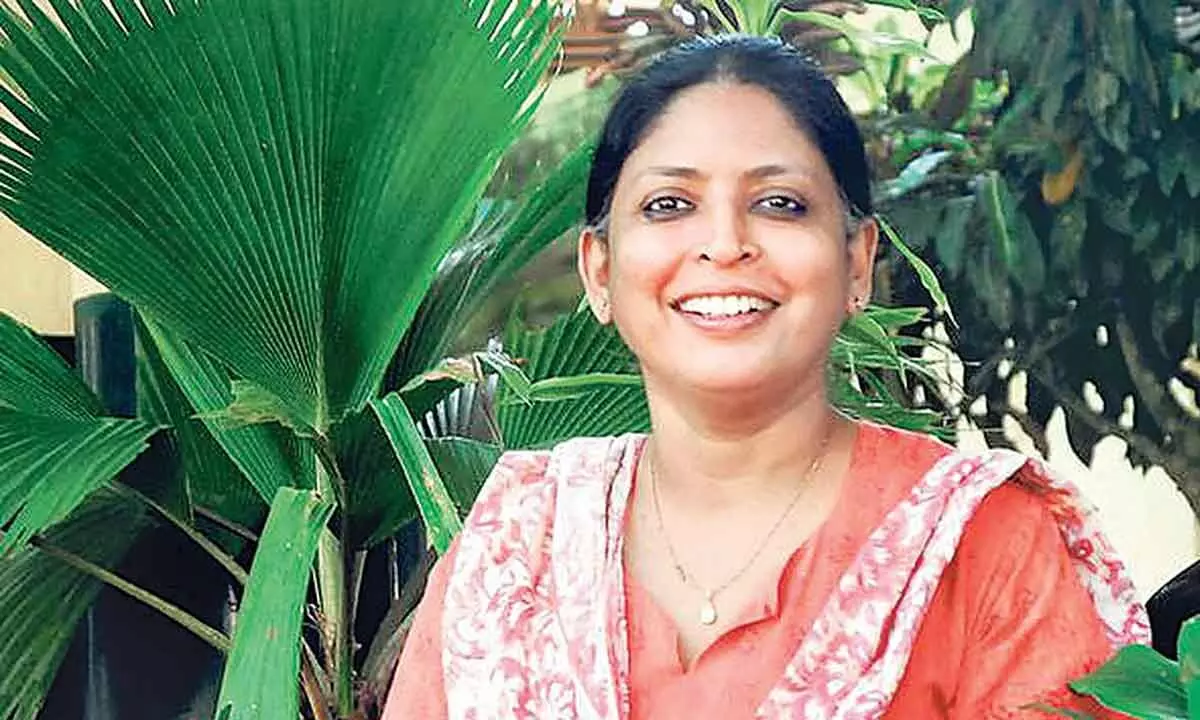Live
- Jagan Unveils YSRCP manifesto for 2024 elections, here are some highlights
- Chandni Chaudhary Takes on Powerful Cop Role in ‘Yevam’
- YSRCP prioritizes women candidates in upcoming elections in Hindupuram
- 30 Youths from TDP Ward Join YSR Congress Party to Support CM Jagananna's Leadership
- NDA Alliance Candidate Badeti Radhakrishnaiah Campaigns in Eluru Constituency
- YS Sharmila Reddy Promises Development and Welfare in Eluru District
- Bobbili TDP Joint Alliance Candidate 'Babynayana' Receives Blessings from Fans for Resounding Victory
- Udayagiri Youth Organize Bike Rally with Chief Guests Mr. Mekapati Abhinav Reddy and Mr. Mekapati Abhishek Reddy
- TDP campaign vehicle set on fire in Annamayya district
- KTR flays Revanth Reddy, says Congress deceiving people
Just In
CIFF will give a push to the film industry in the northern region, says Beena Paul


Even as Chandigarh gets set to host its first-ever international film festival, Cinevesture International Film Festival (CIFF), its Artistic Director,...
Even as Chandigarh gets set to host its first-ever international film festival, Cinevesture International Film Festival (CIFF), its Artistic Director, Beena Paul is optimistic that the event, besides introducing the audiences to some of the best in Indian and world cinema, will give a major push to filmmaking in the region -- Punjabi, Haryanvi and Pahari.
“This is considering that CIFF Market will be bringing together filmmakers who need funds with potential producers. There will be masterclasses, producer meets and platforms to understand the Indian cinema market,” she tells.
A pass-out of the Film and Television Institute of India (FTII), Beena Paul, a major film editor is the recipient of two National Film Awards and three Kerala State Film Awards. Besides, she has held several positions including the artistic director of the International Film Festival of Kerala (IFFK) and the vice chairperson of Kerala State Chalachitra Academy.
Stressing that Chandigarh was chosen after much deliberation considering its strategic location, she adds, “The urban towns in India are the ones that are growing, and one can witness a hunger for cutting-edge events there. We wanted to find a place slightly ‘more’ than Delhi, Mumbai and Goa.”
Talk to her about the challenges synonymous with the debut edition of any major film festival, and she opines that most existing ones already have an audience while they will need to “build” one.
“So, we are showing films that are interesting and accessible and not full-blown art- house. The curation aims to make the viewer more curious.”
Stressing that film festivals are always instrumental in giving a push to new filmmakers who want to tell stories differently, she cites the example of Malayalam cinema.
“I give immense credit to the IFFK, which exposed young filmmakers to movies that were not Bollywood or Hollywood. Young filmmakers realised that a film could be treated in several diverse ways, and that it was perfectly alright to follow one’s peculiar vision,” says Beena Paul, who apart from editing over 50 documentaries and feature films has also directed four documentaries.
For someone who was instrumental in shaping IFFK right from its inception and was its Artistic Director for more than two decades, not to mention the head of programmes at the International Film Festival of India for three years and curating its 50th edition in Goa, smiles, “Yes, building IFFK was tough and there were many challenges. But I look back at it with wonder as we had so much courage.”
In February 2017, Beena Paul co-founded the Women in Cinema Collective, India’s first association that aims to work towards equal opportunity and dignity of women employees in the film industry.
She says before that there was no thought about how women would fend in the industry.
“Individually, we all have suffered and put up good fights, but yes this collective has been good for women working in the industry,” she feels.
While OTT platforms may have introduced everyone to different cinemas of India, she feels most platforms are uncurated.
“Suppose I want to see the works of a particular director... Mubi is an exception.”
As she gets set to bring 85 films from across the country and the world to Chandigarh, she stresses, “We have paid special attention to the Children’s section, and it is completely different from what they see on television. I feel it is extremely important that they are exposed to good cinema from a young age.”

© 2024 Hyderabad Media House Limited/The Hans India. All rights reserved. Powered by hocalwire.com






